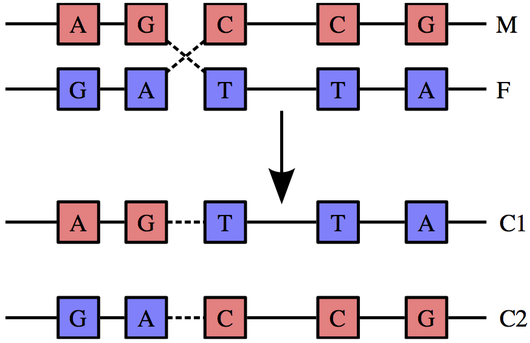Genetic linkage is the tendency of genes located near each other on the same chromosome to be inherited together. In a world without recombination, any genes from the same chromosome would automatically be inherited together, as the chromosome would be passed from one generation to the next with minimal changes. Furthermore, it would cause Mendel's second law to be completely wrong for any genes on the same chromosome.
However, recombination splits genes on the same chromosome, with the consequence that genes located close together are less likely to be separated (see the figure below for an illustration of this fact with two simplified chromosomes). Thus, one early measure of distance between genes on a chromosome was the frequency with which they were inherited together.

Genetic linkage was first hypothesized by Thomas Hunt Morgan in the early 20th Century, and his student Alfred Sturtevant worked out the precise probabilistic details for how genes would be inherited together.